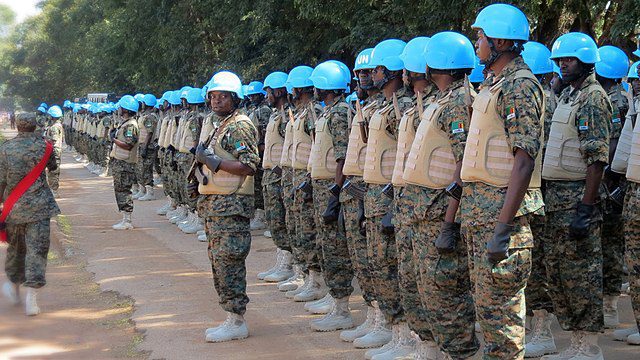APA – Bamako (Mali) – The mandate of the United Nations Multidimensional Integrated Stabilisation Mission in Mali is due to be renewed on 30 June.
As in all countries hosting a UN peacekeeping mission, MINUSMA celebrated International Peacekeepers’ Day on Monday, 29 May, under the theme “Peace begins with me.”
The purpose of the day was to pay tribute to the more than 4,200 peacekeepers who have lost their lives under the UN flag since the first peacekeeping operation was deployed in the Middle East in 1948. The context has changed considerably since then, with peacekeepers now facing an asymmetric threat for which they have no mandate. This is the case for the MINUSMA force deployed in Mali since July 2013. This is compounded by increasing misinformation and disinformation, making it extremely difficult for MINUSMA to fulfil its mandate to support the efforts of the Malian authorities and people. This situation endangers the safety of the peacekeepers, especially when it is accompanied by incitement to violence via social networks.
MINUSMA is undoubtedly the most expensive UN peacekeeping mission in terms of lives and resources. On top of an annual budget of just over a billion dollars, the UN mission in Mali has lost 190 peacekeepers to hostile acts since 2013, while hundreds of others have been injured, some permanently.
Uncertainty over the renewal of MINUSMA’s mandate
This celebration comes at a time of uncertainty about the future of the UN mission in Mali. It has come under increasing criticism for failing to put an end to a decade of insecurity in Mali. In Bamako in particular, there are calls for the mission to leave Mali.
In addition, relations between the UN mission and Mali’s transitional authorities have become increasingly strained, severely limiting the peacekeepers’ room for manoeuvre. Peacekeepers are no longer allowed to move freely, particularly to investigate allegations of human rights violations.
Because of this situation, many contingents have announced the early withdrawal of their troops. These include Germany, Sweden, the UK, Cote d’Ivoire, Benin and Jordan. Egypt, which suspended its operations last year after losing at least 7 peacekeepers, is taking time to reflect before making a final decision.
UN Secretary-General António Guterres has indicated that the mission is no longer viable and has proposed three options to change the situation. Today, MINUSMA has to face this asymmetric threat alone, whereas in the past it was supported by Barkhane, which will withdraw from Mali in August 2022. Thus, the first option proposed by Antonio Guterres is that “all the parameters” must be met. These include progress in the political transition – which, after two military coups, will see civilians return to power in March 2024 – and freedom of movement for peacekeepers. To achieve this, he has called for an increase in troop numbers, raising the problem of finding troops at a time when several contributing countries (representing more than 2,250 peacekeepers) have announced their withdrawal from MINUSMA.
The second option, in the event that “the key parameters for the mission to operate with its current mandate are not met,” the Secretary-General mentions the “withdrawal of uniformed units” and its transformation into a “special political mission” with a presence only in Bamako. Between these two extremes, Guterres proposes maintaining the number of peacekeepers but modifying the mandate by closing certain camps or reducing the presence in the centre of the country.
All three options have so far been rejected by the Malian government, which wants the mission to accompany it unconditionally in securing the country’s territory. However, the mission’s mandate, which is due for renewal on 30 June, does not allow for such a commitment.
MD/ac/lb/abj/APA


